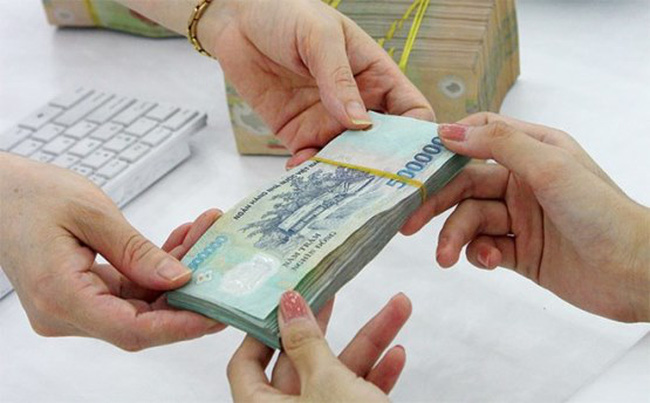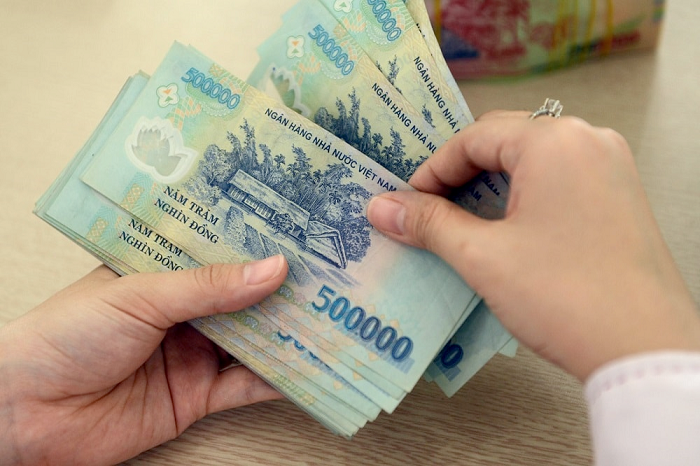Contracts for loan of property under Vietnam Civil Code

Contracts for loan or property are popular to many people. Let’s find out this issue with Lawyer X through the following situation: “Dear Lawyer! I want to ask what are contracts for loan of property? What are rights and obligations of lenders and borrowers to this kind of contract? Thanks for answering me!”
Legal grounds
- 2015 Vietnam Civil Code
What are contracts for loan of property?
Contract for the loan of property means an agreement between parties whereby a lender delivers property to a borrower. When the loan falls due, the borrower must repay the lender property of the same type in accordance with the correct quantity and quality, and must pay interest if so agreed or so provided by law.
A borrower shall become the owner of borrowed property from the time of delivery of the property.
What are obligations of lenders?
– Deliver the property to the borrower in full, strictly in accordance with the quality and quantity, and at the time and place, agreed.
– Compensate the borrower for any damage where the lender knows that the property is not of the agreed quality but fails to notify the borrower, unless the borrower accepts the property with knowledge that the property is not of the agreed quality.
– Do not demand the borrower to return the property prior to the due date, except in the cases provided in article 470 of Vietnam Civil Code or relevant laws.
What are obligations of borrowers to repay loans?
– Where the property lent is a sum of money, the borrower must repay the lender the loan in full when due. If the property is an object, the borrower must deliver to the lender an object of the same type, quantity and quality, unless otherwise agreed.
– Where a borrower is not able to deliver an object, it may, with the consent of the lender, repay the value of the borrowed object, in cash, as at the time and place of delivery.
– The place for repayment of a loan shall be the place of residence or head office of the lender, unless otherwise agreed.
– If a borrower fails to repay all or any instalment of an interest-free loan, in whole or in part, when payment falls due, the borrower must, if the parties so agree, pay interest on the overdue amount from the due date until the date on which payment is made, at the basic interest rate prescribed in Clause 2 Article 468 of Vietnam Civil Code, unless otherwise agreed or otherwise prescribed by law.
– If a borrower fails to repay, in whole or in part, a loan with interest, the borrower must pay:
- Interest on the principal as agreed in proportion to the overdue loan term and interest at the rate prescribed in Clause 2 Article 468 in case of late payment;
- Overdue interest on the principal equals one hundred and fifty (150) per cent of the interest rate in proportion to the late payment period, unless otherwise agreed.

Regulations on use of borrowed property
Parties may agree that borrowed property may only be used for the agreed purpose of the loan. The lender may check the use of the property and may demand its early return if, despite warning, the borrower continues to use the property contrary to the agreed purpose.
Regulations on interest rates
– The rate of interest for a loan shall be as agreed by the parties.
The rate of interest for a loan agreed by the parties may not exceed 20% per year, unless otherwise prescribed by law. According to actual conditions and at the proposal of the Government, the Standing Committee of National Assembly shall adjust the above interest and send report to the National Assembly at the latest session.
If the agreed interest exceeds the maximum interest prescribed in this Clause, the agreed interest shall become invalid.
– Where parties agree that interest will be payable but fail to specify the interest rate, or where there is a dispute as to the interest rate, the interest rate for the duration of the loan shall equal 50% of the maximum interest prescribed in Clause 1 of Article 468 at the repayment time.
Performance of contracts for loans without fixed term
– With respect to a contract for an interest-free loan without a fixed term, the lender may reclaim the property, and the borrower may repay the debt, at any time provided that each party gives reasonable prior notice to the other party, unless otherwise agreed.
– With respect to a contract for a loan with interest without a fixed term, the lender may reclaim the property at any time, subject to giving reasonable prior notice to the borrower, and shall be paid interest until the time when the property is returned. The borrower may also return the property at any time, subject to giving reasonable prior notice to the lender, in which case the borrower shall pay interest only up to the date on which repayment is made.
Performance of contracts for fixed term loans
– With respect to a contract for a fixed term interest-free loan, the borrower may return the property at any time, subject to giving reasonable prior notice to the lender. The lender may reclaim the property prior to the due date, subject to the consent of the borrower.
– With respect to a contract for a fixed term loan with interest, the borrower may return the property prior to the due date, but must pay interest for the entire term, unless otherwise agreed or otherwise prescribed by law.
Regulations on “Họ, hụi, biêu, phường”
– “Họ, hụi, biêu, phường” (hereinafter referred to as “ho”) means a form of transaction regarding property in accordance with customary practice on the basis of an agreement reached by a group of people who assemble together and jointly determine the number of people, the term, the amount of money or other property, the form of contribution and payment of “ho”, and the rights and obligations of the members of the group.
– “Ho” is aimed at mutual assistance of citizens and shall be implemented in accordance with law.
– If “ho” is organized with interest, it shall comply with Vietnam Civil Code.
– It shall be strictly prohibited to organize “ho” in the form of lending at high interest rates.
Please see more:
- Instructions for exclusive registration of company logos in Vietnam
- Service of changing the legal representative of Vietnamese enterprises
Services of Lawyer X
Prestigious professional services: Firstly, the team of consultants and consultants for many years in the field of civil status, and customer support.
On-time: Certainly, with the motto “Get your lawyer right at your fingertips”, we ensure the service always performs on time. The rights and interests of customers always come first.
Cost: Besides, Lawyer X’s service costs are highly competitive; depending on the nature of the particular case. So, we want our guests to have the best possible service experience. Therefore, costs which guaranteed to be the most suitable and economical for customers.
Confidentiality of client information: Finally, all personal information of clients Lawyer X will be 100% confidential.
If you need any further information, please contact LSX Law firm: at +84846175333 or Email: [email protected]
Frequently asked questions
A borrower shall become the owner of borrowed property from the time of delivery of the property.
The place for repayment of a loan shall be the place of residence or head office of the lender, unless otherwise agreed.
Yes! Where the property lent is a sum of money, the borrower must repay the lender the loan in full when due. If the property is an object, the borrower must deliver to the lender an object of the same type, quantity and quality, unless otherwise agreed.
Conclusion: So the above is Contracts for loan of property under Vietnam Civil Code. Hopefully with this article can help you in life, please always follow and read our good articles on the website: lsxlawfirm.com




